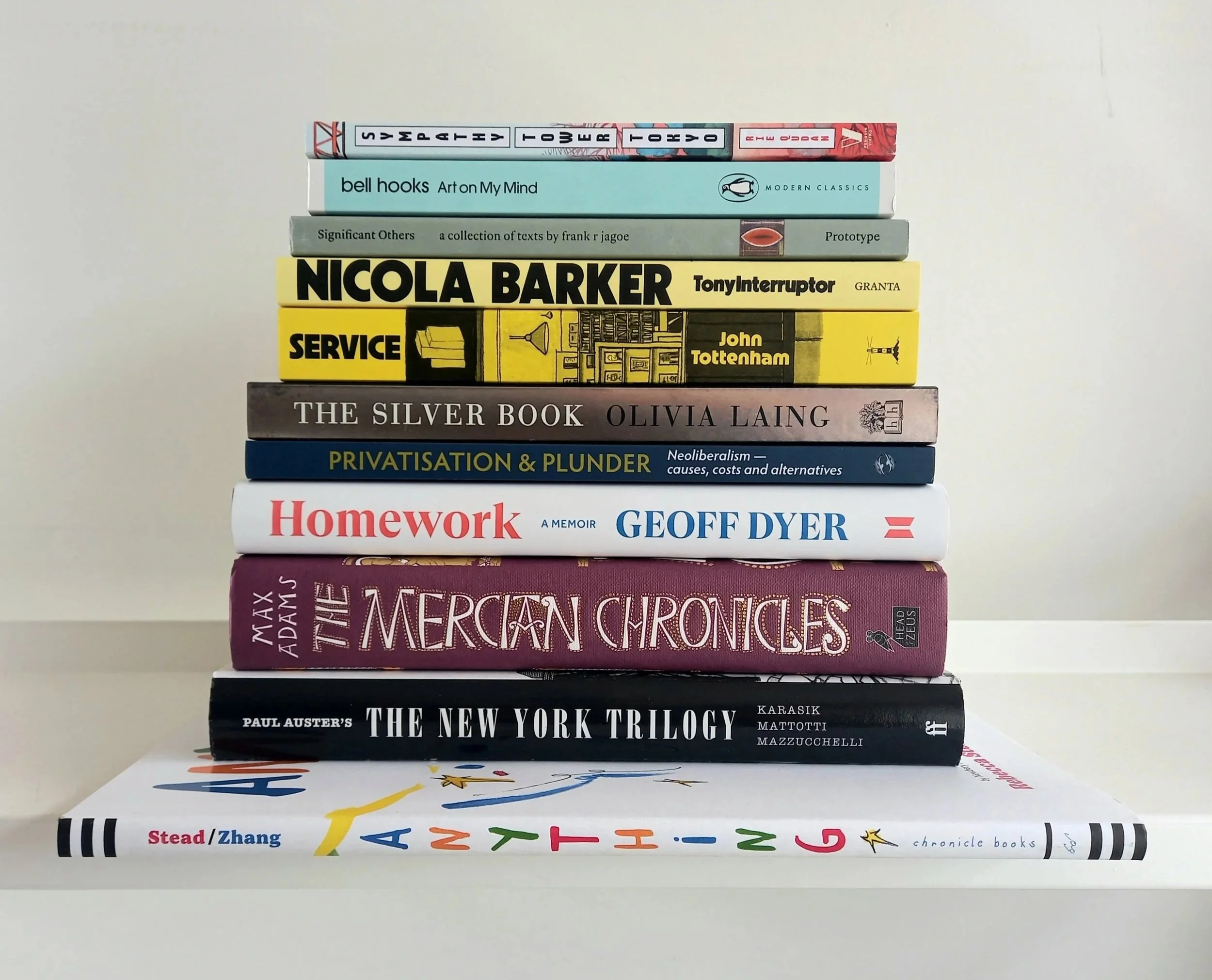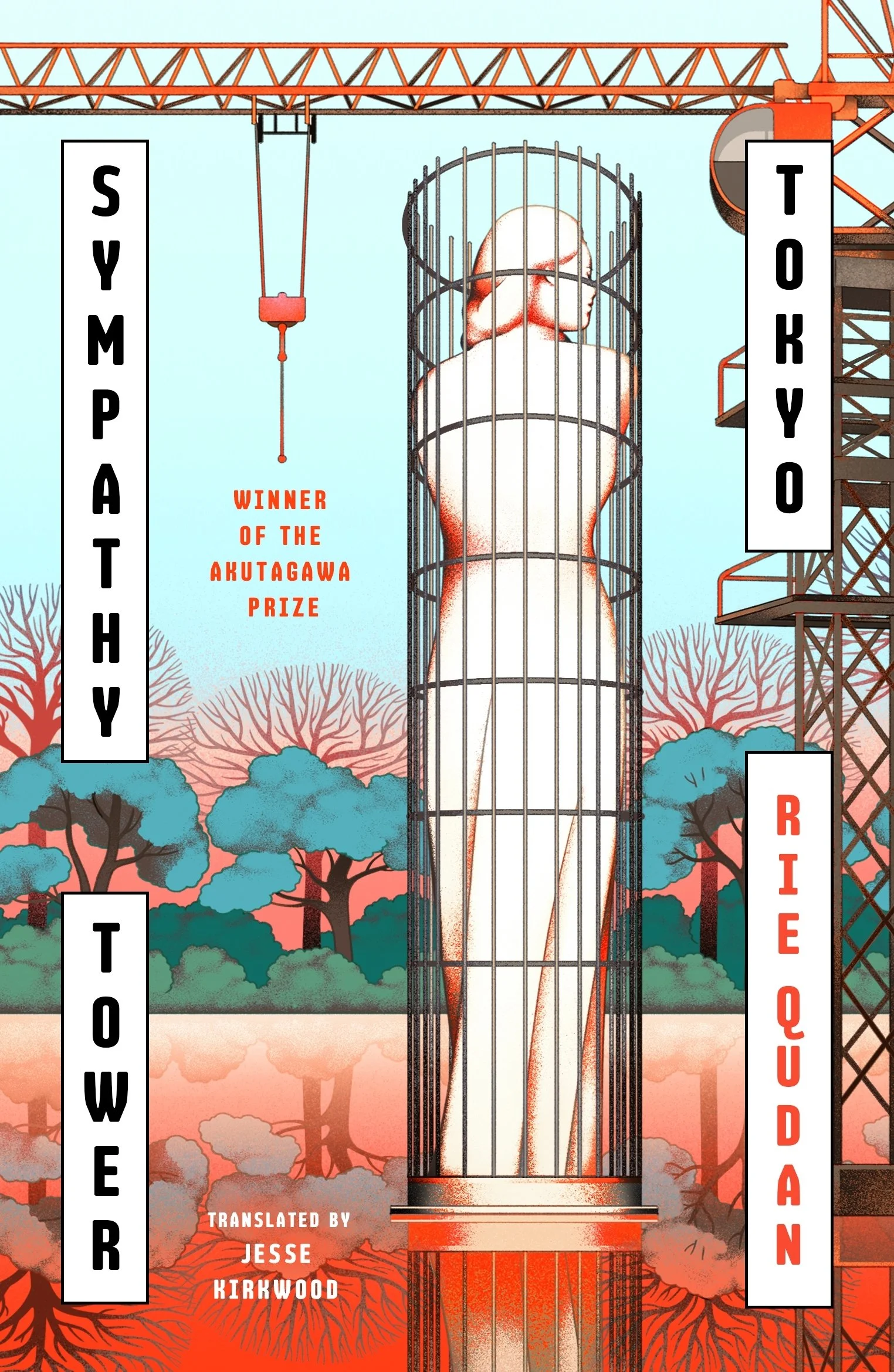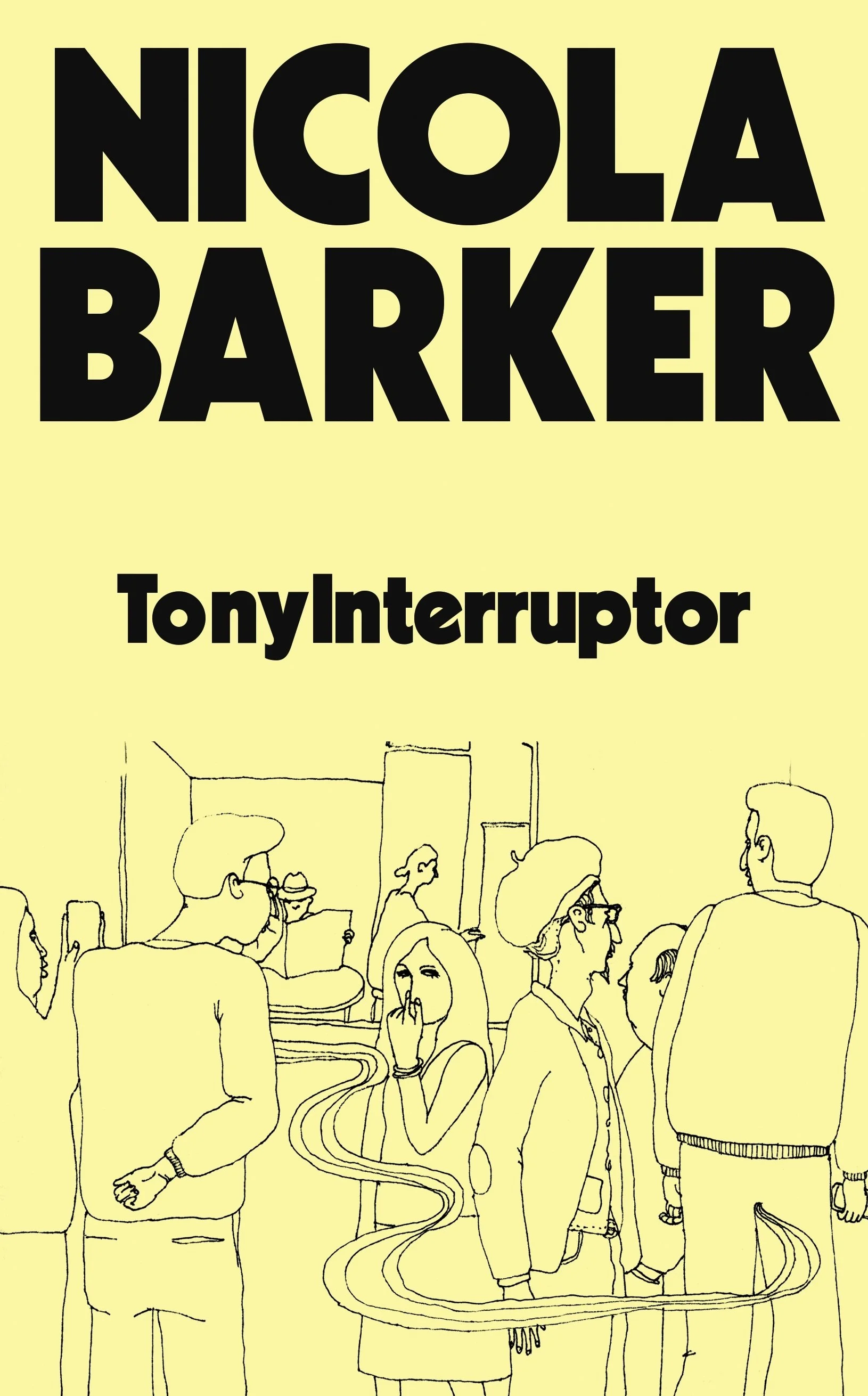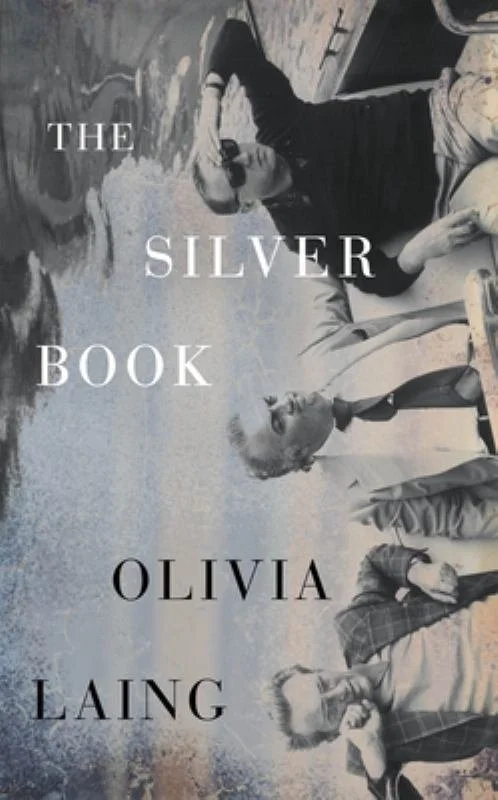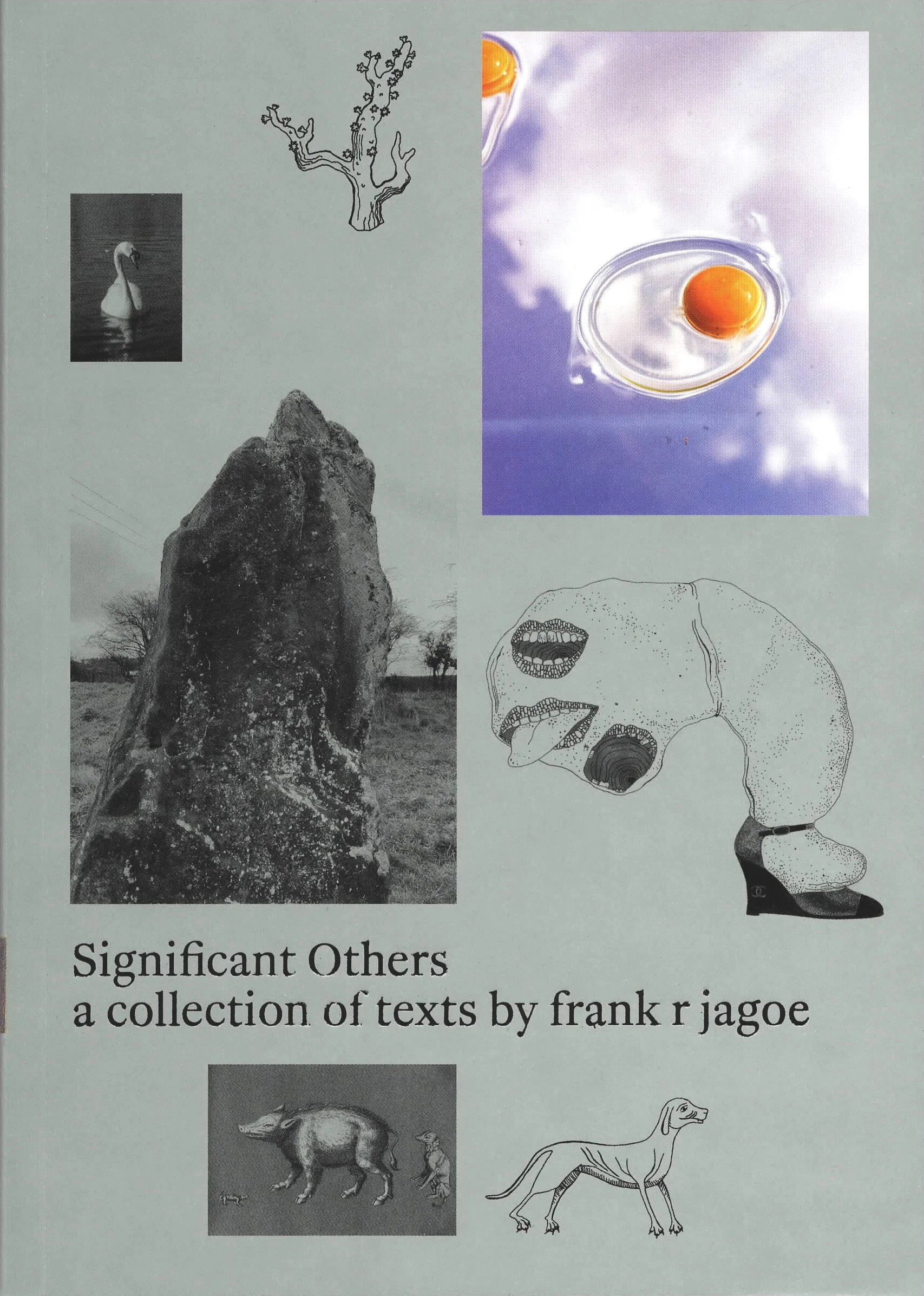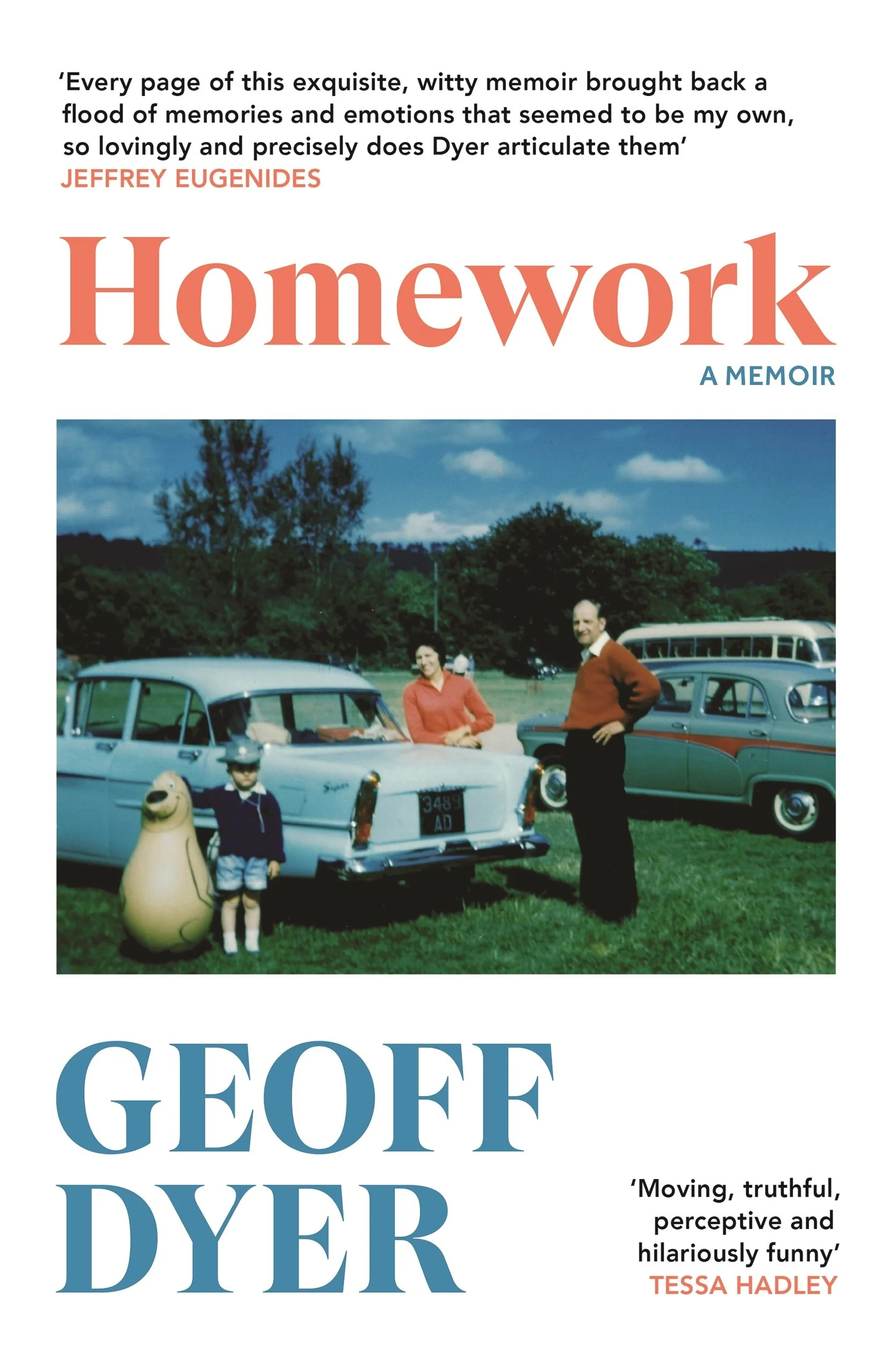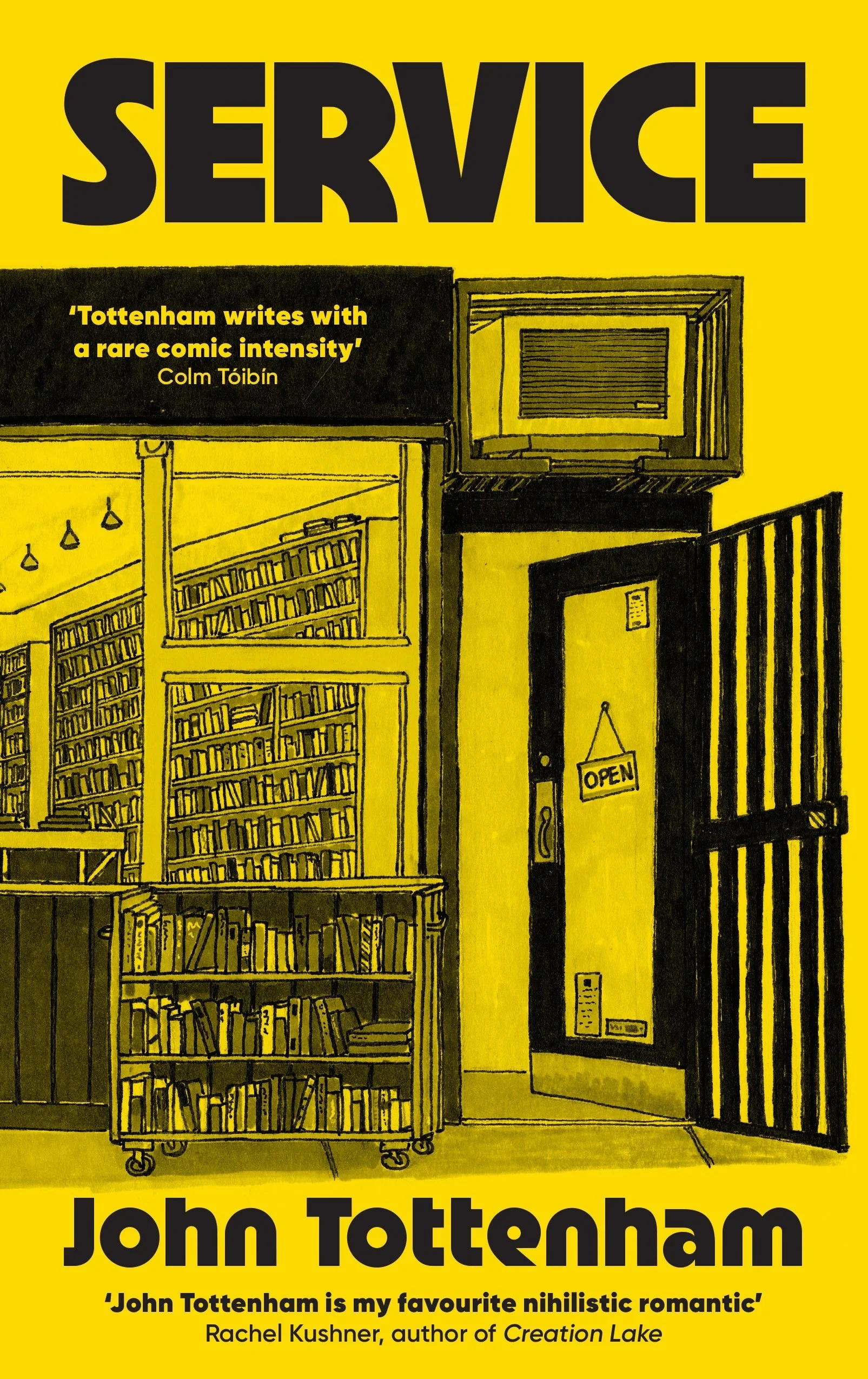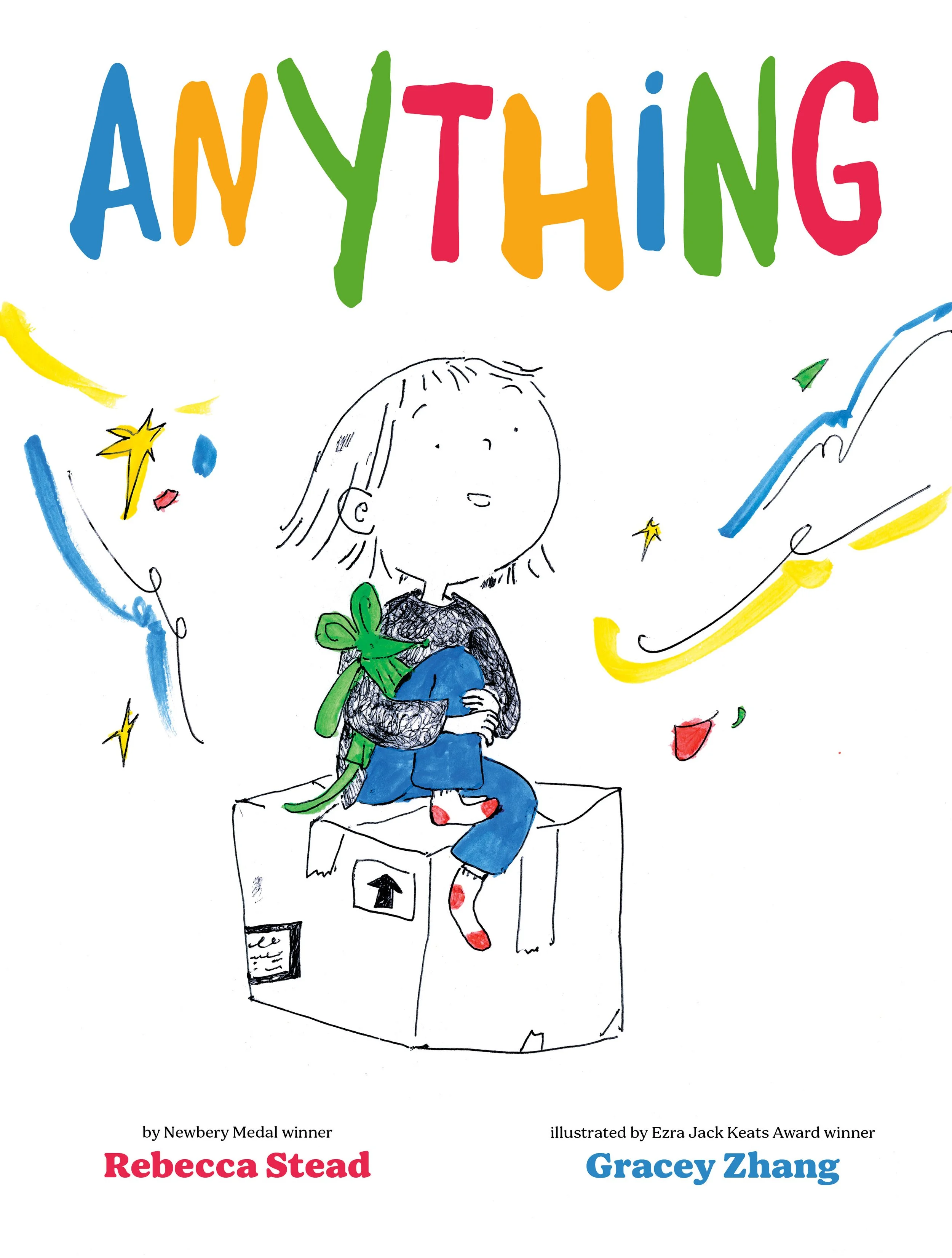NEW RELEASES (28.11.25)
All your choices are good! Click through to our website (or just email us) to secure your copies. We will dispatch your books by overnight courier or have them ready to collect from our door in Church Street, Whakatū.
Sympathy Tower Tokyo by Rie Qudan (translated from Japanese by Jesse Kirkwoord) $30
Welcome to the Japan of tomorrow. Here, the practice of a radical sympathy toward criminals has become the norm and a grand skyscraper in the heart of Tokyo is planned to house wrongdoers in compassionate comfort — Sympathy Tower Tokyo. Acclaimed architect Sara Machina has been tasked with designing the city's new centrepiece, but is riven by doubt. Haunted by a terrible crime she experienced as a young girl, she wonders if she might inherently disagree with the values of the project, which should be the pinnacle of her career. As Sara grapples with these conflicting emotions, her relationship with her gorgeous — and much younger — boyfriend grows increasingly strained. In search of solace, in need of creative inspiration, Sara turns to the knowing words of an AI chatbot. Awarded the Akutagawa Prize, Japan's highest literary prize. Partly inspired by conversations with an artificial intelligence, it offers an extraordinary defence of the power of language written by humans, a touching exploration of the imaginative impulse, and an often hilarious send up of our modern world's unrelenting conformity. [Paperback with French flaps]
”Stuns and illuminates. Sympathy Tower Tokyo is an ode to language and possibility and the ongoing question of how to be in an ever-changing world.” —Bryan Washington
”A brilliantly ambitious struggle and mediation on language, thought and existence. A wondrous book.” —Nana Kwame Adjei-Brenyah
>>”Why I used ChatGPT to write my prize-winning novel.”
TonyInterruptor by Nicola Barker $33
”Is this honest? Are we all being honest here?” You couldn't really call the man soon to be christened TonyInterruptor a heckler, but he seems to feel an unquenchable urge to disrupt and interrupt live cultural events. Who is he? What does he want? Why does he indulge in behaviour that violates the social contract? After just such a public interruption goes viral, a small group of characters determine to find out the answers to these question, and end up learning more than they might possibly like about music, culture, relationships, Art, integrity, each other and their own endlessly disrupted and disruptable selves. As profound as it is exuberant, TonyInterruptor is a comic tour-de-force that traces the aftermath of a single event as it reverberates through the online world and its characters' lives, upending everything in its wake and posing fundamental questions about authenticity, the internet, love and, yes, truth. [Paperback]
”Brilliantly over-the-top. Barker is known for experiment and brainy whimsy. There could be no better person to write a comedy about art and its discontents. It's a rollercoaster kind of excess, where the best part is that it's too much. Barker seems incapable of putting a foot wrong. This is satire that sees right through you, but forgives you and teaches you to forgive yourself. It's that rare thing, a serious work of art that is also a giddy confection: a vehicle of pure delight.” —Sandra Newman, Guardian
>>Read an extract.
>>We are all weirdos.
The Silver Book by Olivia Laing $38
It is September 1974 and two men meet by chance in Venice. One is a young English artist in panicked flight from London. The other is Danilo Donati, the magician of Italian cinema, the designer responsible for realising the spectacular visions of Fellini and Pasolini. Donati is in Venice to produce sketches for Fellini's Casanova, and a youthful — and beautiful — apprentice is just what he needs. He sweeps Nicholas to Rome, into the looking-glass world of Cinecittà, the studio where Casanova's Venice will be ingeniously assembled. Then in the spring, the lovers move together to the set of Salò, Pasolini's horrifying fable of fascism. But Nicholas has a secret and in this world of constant illusion, his real nature passes unseen. Amidst the rising political tensions of Italy's 'Years of Lead', he acts as an accelerant, setting in motion a tragedy he didn't intend. [Paperback]
”Like the script of an unwritten movie, voyeuristic, slick with 1970s decadence, glittering with shadows and unspoken sins, The Silver Book is lush, intense, wildly evocative; subtly freighted with emotional power and sensuality, it is simply their best book yet.” —Philip Hoare
”The Silver Book is an astounding work. It's difficult to believe this isn't an eyewitness account: the characters appear to live and breathe in actual time and we experience with them all the erotic tensions, as well as the tragedies, involved in their defiant pursuit of beauty. The world of Fellini and Pasolini is uncannily resurrected in this visionary narrative.” —Celia Paul
”Transporting, heartbreaking, beautiful. I did not want this story to end.” —Nigel Slater
”A truly wonderful book.” —Edmund de Waal
”An enchanted tale of an accursed era. In spare, subjective prose, with a deep appreciation of craft, material, texture, color, Laing brilliantly evokes Cinecitta when its creative masters were at their peak. The book manages to be both wonderfully escapist and a timely warning.” —Lucy Sante
>>Dark mysteries and glittery illusions.
>>Fictionalising a murder.
Significant Others: A collection of texts by frank r. jagoe $45
The world is always speaking to you. Held together by a shared language, all beings are constantly, endlessly chatting away, saying something or other. What this language constitutes may vary, but all matter is alive, and it always has something to say. Significant Others is not a world of magical realism, but a different means of describing the existing world. It offers an opposition to the reductive logic of Western capitalism which views other-than-humans as only resources for extraction. Other beings feature as metaphors, or omens, but also as fleshly, agential creatures. Often the encounters are erotically charged, using Audre Lorde’s definition of the erotic as an intentionality that can permeate all aspects of life. In one story, the protagonist attempts to figure out how to have sex with a bathroom mirror; in another, a catfish drags itself through Piccadilly Circus tube station with an uncomfortable level of intimacy with all the surfaces they come into contact with; a person births a stone from their rectum; a lump of topaz in someone’s brain triggers their depression; a human tries to talk to a limestone cliff using touch; a swan drinks the bathwater of their human lover. This book is a collection of different fictionalised narratives, but across them they chart, somewhat anachronistically, a journey from total withdrawal to reimmersion in the ebb and flow of living, alongside a growing recognition that isolation is never truly possible. Life insists. frank r jagoe’s work is a reclamation of madness and monstrosity in opposition to the exclusionary category of the human. Often it explores communication with other-than-humans: in recognition that we are in community with each other; in acknowledgement of the personhood of other-than-human beings; and in order to displace a western hierarchy that claims humanity as the highest form of existence. They are particularly drawn to considering how madness and monstrosity are defined in relation to language usage, and in opposition to rationality, coherence, and ‘reason’. Highlighting forms of communication beyond words, beyond class-based language, beyond human forms of speech, feels an urgent imperative. Throughout they want to consider whose language is respected, whose language is engaged with, and believed, or even acknowledged. Influenced by medieval lapidary texts, jagoe’s most recent focus has been finding kinship with rocks, and trying to think through how we can communicate across vastly different experiences of time.[Paperback]
”Significant Others is a fully grown and highly original manuscript. It is a remarkable and beautiful piece of writing which forges a new language of material aesthetics to think and write beyond the human. There is a fluency and elasticity of invention here, resonating with the processes of artistic creation and encounter. Exciting, passionate and surprising.” —Bhanu Kapil, Tom McCarthy and Elizabeth Price, judges of the 2024 Prototype Prize
Art on My Mind: Visual politics by bell hooks $30
”If one could make a people lose touch with their capacity to create, lose sight of their will and their power to make art, then the work of subjugation, of colonisation, is complete. Such work can be undone only by acts of reclamation.” In a collection of essays, critiques and interviews, bell hooks responds to the ongoing dialogues about producing, exhibiting and criticizing art and aesthetics in a world increasingly concerned with identity politics. hooks shares her own experience of the transformative power of art whilst exploring topics ranging from art in education and the home to the politics of space and imagination as a revolutionary tool. She positions her writings on visual politics within the ever-present question of how art can be empowering within the Black community. Speaking with artists such as Carrie Mae Weems and Alison Saar, and examining the work of Jean-Michel Basquiat and Felix Gonzalez-Torres, Art on My Mind is a generous and expansive body of work that has become increasingly relevant since it was first published in 1995. [Paperback]
Privatisation and Plunder: Neoliberalism — causes, costs, and alternatives edited by Chris Werry and Richard Werry $30
Privatisation & Plunder lays bare how forty years of neoliberalism reshaped Aotearoa New Zealand more radically than almost any other nation. Privatisation, deregulation and austerity tore through public life, deepening inequality and fuelling today’s crises in housing, work and the cost of living. Bringing together leading voices from academia and activism, this powerful collection exposes the real legacy of the ‘New Zealand Experiment’ — and offers bold, practical alternatives: universal basic income, public ownership, democratic renewal and economic justice. Accessible, provocative and essential, Privatisation & Plunder is both a wake-up call and a vision for a fairer, more hopeful Aotearoa. Contributors: Geoff Bertram, Brett Christophers, Brian Easton, Max Harris, Jane Kelsey, Bill Mitchell, Jacqueline Paul, John Quiggin, Max Rashbrooke, Bill Rosenberg, Guy Standing, Chris Werry, Richard Werry. [Paperback]
Homework by Geoff Dyer $45
In Homework, Geoff Dyer reflects on his childhood and what it means to come of age in England in the 60s and 70s, in a country shaped by the aftermath of the Second World War but accelerating towards change. He was born in Cheltenham in the late fifties, the only child of a dinner lady and a planning engineer. Raised in a working-class area, Geoff and his mates found much joy recreating battles with their beloved Tommy guns, kicking a beachball around until its untimely death, and collecting anything and everything they could find; football cards, conkers and Action Man figures. When Geoff passes his 11-plus exams he gets in to a Cheltenham Grammar School, a school which drastically changes the trajectory of his life. [Hardback]
“Homework is wonderful Geoff-Dyer writing, which we've all learned to crave; something to delight and to move us and to edify us on every page. I find him an irresistible writer.” —Richard Ford
”Moving, atmospheric, truthful, perceptive and hilariously funny — I loved it: a piece of our English history, the story of a vanished time, which feels close at hand but thoroughly gone. What a story. What a great story.” — Tessa Hadley
”Geoff Dyer and I nearly share a name and a birth year. We were born in different countries, however, under different circumstances. No matter. Every page of this exquisite, witty memoir brought back a flood of memories and emotions that seemed to be my own, so lovingly and precisely does Dyer articulate them. A heartfelt book by a supremely intelligent writer.” —Jeffrey Eugenides
>>Catching up.
>>Giving up.
The Mercian Chronicles: King Offa and the birth of the Anglo-Saxon state, AD 630—918 by Max Adams $55
The eighth century has long been a neglected backwater in English history- a shadowland between the death of Bede and the triumphs of lfred. But before the hegemony of Wessex, the kingdom of Mercia — spread across a broad swathe of central England — was the dynamic heart of a kingship that discovered the means to exercise central political authority for the first time since the Roman empire. That authority was used to construct trading networks and markets; develop economic and cultural links with the Continent, and lay the foundations for a system of co-ordinated defence that lfred would reinvent at the end of the ninth century. Two kings, Thelbald (716-757) and Offa (757-796) dominate the political landscape of the rising power of Mercia. During their reigns, monasteries became powerhouses of royal patronage, economic enterprise and trade. Offa constructed his grandiose dyke along the borders of the warlike Welsh kingdoms and, more subtly, spread his message of political superiority through coinage bearing his image. But thelbald and Offa between them built something with an even more substantial legacy — a geography of medieval England. And they engineered a set of tensions between kingship, landholding and church that were to play out dramatically at the dawn of the Viking Age. [Hardback]
”In this this remarkable book, Max Adams breathes new life into the royal families of the largely forgotten Saxon Kingdom of Mercia, which we can now see played a crucially important role in the foundation of the emerging kingdom of England.” —Francis Pryor
Paul Auster’s The New York Trilogy: City of Glass; Ghosts; The Locked Room by Paul Auster, Paul Karasik, Lorenzo Mattotti, and David Mazzucchelli $45
From award-winning novelist Paul Auster comes the graphic adaptation of his beloved series, The New York Trilogy, a postmodern take on detective and noir fiction. In 1994, Paul Auster's City of Glass was adapted into a graphic novel and became an immediate cult classic, published in over 30 editions worldwide, excerpted in The Norton Anthology of Postmodern Fiction. But City of Glass was only the first novel in a series of books, Auster's New York Trilogy, and graphic novel readers have been waiting for years for the other two tales to be translated into comics. Now the wait is over. The New York Trilogy is post-modern literature disguised as Noir fiction where language is the prime suspect. An interpretation of detective and mystery fiction, each book explores various philosophical themes. In City of Glass, an author of detective fiction investigates a murder and descends into madness. Ghosts features a private eye named Blue, trailing a man named Black, for a client called White. This too ends with the protagonist's downfall. And in The Locked Room, another author is experiencing writer's block, and hopes to brake it by solving the disappearance of his childhood friend. The second two parts of this trilogy will be appearing in this volume for the very first time as a graphic novel. Paul Karasik, the mastermind behind the three adaptations, art-directed all three books. City of Glass is illustrated by the award-winning cartoonist David Mazzucchielli, the second volume, Ghosts, is illustrated by New Yorker cover artist, Lorenzo Mattotti, and The Locked Room is adapted and drawn by Karasik himself. These adaptations take Auster's sophisticated wordplay and translate it into comicsplay: both highbrow and lowbrow and immensely fun reading. [Hardback]
>>Look inside!
Service by John Tottenham $38
In his late forties, John, a failed journalist and failing novelist, finds himself working at a bookshop in a rapidly gentrifying Los Angeles neighbourhood, where he is thrown into the company of a younger generation with whom he has little in common. Embittered by his lowly position at this late stage of what had once been a promising career, he collapses his ambition of writing a novel into a hilariously cathartic litany of contempt for his present circumstances. In between chasing noisy cell-phone users around the shop and wrapping books he hates for wealthy mums he hates even more, John reflects on his fraught relationship with service as an unrepentant outsider in an age of conformity. With dry wit, John Tottenham's debut novel reflects on a farrago of contemporary afflictions: gentrification, debt, self-medication, male vanity, professional jealousy, the perils of political correctness, and the role of literature in the digital era. [Paperback]
”So heartfelt that we find ourselves howling with laughter because, despite his best efforts, John Tottenham writes with a rare comic intensity and re-creates himself in the guise of an unforgettable character in fiction.” —Colm Toibin
”The weariest bohemian, with a Keatsian death-drive he somehow keeps outliving, John Tottenham is my favourite nihilistic romantic.” —Rachel Kushner
”Hilarious, refreshingly mean-spirited and often brilliant.” —Washington Post
Anything by Rebecca Stead, illustrated by Gracey Zhang $40
Anything paints a tender picture of a father and daughter moving into a new home. Dad brings a birthday cake for the new apartment to celebrate their new beginning and tells his daughter she can wish for anything (or, more precisely, "three Anythings"). Over the course of the day, she wishes for some of her favorite things, including a rainbow and "the biggest slice of pizza in the whole world”. But she keeps some of her wishes inside. Because what she really wants is to go back home to their old apartment, with its big blue bathtub and space in the closet for hide-and-seek. When she finally admits this last wish, her dad takes her on a journey, and by the book's final pages, she is home . . . in every way that matters. [Hardback]
>>Look inside!

